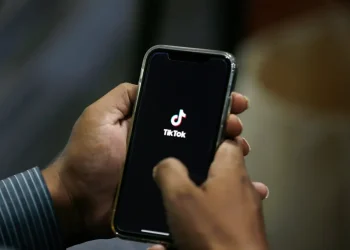Human Resources in the Modern Workplace: Building Better Businesses and Happier Teams
Human Resources (HR) has evolved significantly in recent years, transforming from an administrative function to a strategic partner within organizations. Modern HR departments are at the forefront of creating inclusive workplaces, driving employee engagement, and aligning workforce goals with business strategies. This article delves into the critical roles HR plays in today’s fast-changing work environment and how it contributes to organizational success.
The Evolving Role of Human Resources
In the past, HR was largely associated with hiring, payroll, and compliance. While these tasks remain essential, the role of HR has expanded to include strategic responsibilities such as:
- Workforce Planning: Anticipating future talent needs to support business growth.
- Employee Experience: Creating an environment where employees feel valued, motivated, and supported.
- Diversity and Inclusion: Promoting a culture that celebrates diversity and ensures equity across all levels.
- Change Management: Guiding organizations through transformations, from mergers to adopting new technologies.
This shift reflects a broader recognition of the value employees bring to a business and the need to manage that resource effectively.
Recruitment: Attracting the Right Talent
One of HR’s primary functions is recruitment, and in today’s competitive job market, attracting top talent is more challenging than ever. Modern HR professionals use tools like applicant tracking systems (ATS), artificial intelligence (AI), and social media to streamline recruitment and identify the best candidates.
Additionally, employer branding has become a critical part of attracting talent. Companies that showcase their culture, values, and benefits are more likely to appeal to high-quality applicants. Glassdoor reviews, LinkedIn profiles, and employee testimonials now play a significant role in a candidate’s decision to apply.
Employee Engagement and Retention
Hiring the right people is only half the battle. Keeping them engaged and motivated is equally important. HR professionals are tasked with creating programs that foster a positive work environment. Examples include:
- Employee Recognition: Rewarding achievements to boost morale.
- Training and Development: Providing opportunities for employees to learn and grow professionally.
- Work-Life Balance Initiatives: Offering flexible working hours, remote options, and mental health support.
Engaged employees are not only more productive but also less likely to leave, reducing turnover costs and improving organizational stability.
The Rise of HR Technology
Technology has revolutionized the HR field, enabling data-driven decision-making and greater efficiency. Key advancements include:
- HR Analytics: Tools that analyze workforce data to predict trends, such as turnover rates or productivity dips.
- Self-Service Portals: Platforms where employees can manage their benefits, update personal information, and access training resources.
- AI-Powered Chatbots: Automating responses to common HR queries, saving time for HR staff.
These technologies allow HR departments to focus on strategic initiatives while automating routine administrative tasks.
Diversity, Equity, and Inclusion (DEI): A Strategic Imperative
Modern HR is deeply involved in fostering diversity, equity, and inclusion (DEI) within organizations. Research shows that diverse teams are more innovative, make better decisions, and perform better financially. HR professionals work to:
- Eliminate unconscious bias in hiring.
- Implement policies that support underrepresented groups.
- Educate employees on the value of diversity.
DEI initiatives not only create a fairer workplace but also enhance a company’s reputation, making it more attractive to potential employees and customers.
The Importance of Employee Well-Being
Employee well-being has taken center stage, particularly after the challenges brought on by the COVID-19 pandemic. HR departments now prioritize mental health, physical wellness, and work-life balance. Common initiatives include:
- Access to Counseling Services: Providing mental health support through Employee Assistance Programs (EAPs).
- Wellness Programs: Offering gym memberships, yoga classes, or mindfulness sessions.
- Remote Work Options: Allowing flexibility in how and where employees work.
These measures show employees that their well-being is valued, leading to higher job satisfaction and loyalty.
HR’s Role in Organizational Strategy
HR no longer operates in isolation—it works closely with leadership to align human capital strategies with business goals. For example, HR might:
- Design succession plans to prepare for leadership transitions.
- Develop incentive programs to drive performance in key areas.
- Facilitate culture change initiatives during organizational restructuring.
By taking on a more strategic role, HR ensures that workforce planning supports long-term business objectives.
Conclusion
Human Resources is no longer just about managing employees—it’s about empowering them. By focusing on recruitment, engagement, DEI, well-being, and strategic alignment, HR professionals play a pivotal role in shaping the future of organizations.
As businesses continue to adapt to new challenges, from technological advancements to evolving workforce expectations, HR will remain at the heart of these transformations, building better workplaces for employees and stronger foundations for success.
/jn/
This article was rewritten by JournosNews.com based on verified reporting from trusted sources. The content has been independently reviewed, fact-checked, and edited for accuracy, neutrality, tone, and global readability in accordance with Google News and AdSense standards.
All opinions, quotes, or statements from contributors, experts, or sourced organizations do not necessarily reflect the views of JournosNews.com. JournosNews.com maintains full editorial independence from any external funders, sponsors, or organizations.
Stay informed with JournosNews.com — your trusted source for verified global reporting and in-depth analysis. Follow us on Google News, BlueSky, and X for real-time updates.














